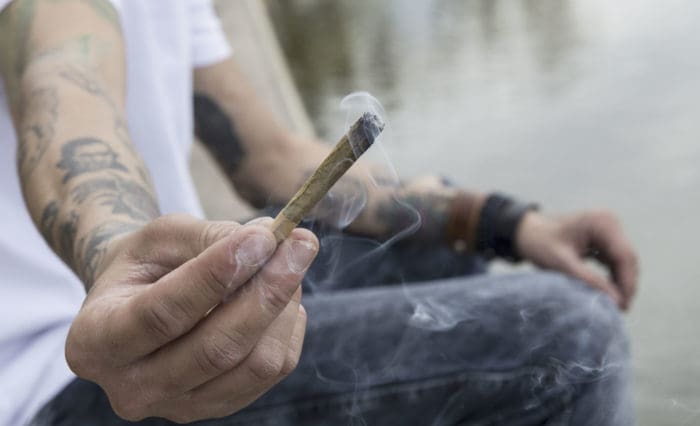Just as there was no historical justification for disarming a citizen of sound mind, there is no tradition that supports disarming a sober citizen who is not currently under an impairing influence. Indeed, it is helpful to compare the tradition surrounding the insane and the tradition surrounding the intoxicated side-by-side. The Founders purportedly institutionalized the insane and stripped them of their guns; but they allowed alcoholics to possess firearms while sober.
We must ask, in Bruen-style analogical reasoning, which is [defendant Patrick] Daniels more like: a categorically “insane” person? Or a repeat alcohol user? Given his periodic marihuana (sic) usage, Daniels is firmly in the latter camp. If and when Daniels uses marihuana, he may be comparable to a mentally ill individual whom the Founders would have disarmed. But while sober, he is like the repeat alcohol user in between periods of drunkenness. …
[T]here is a considerable difference between someone who is actively intoxicated and someone who is an “unlawful user” under § 922(g)(3). The statutory term “unlawful user” captures regular users of marihuana, but its temporal nexus is vague—it does not specify how recently an individual must “use” drugs to qualify for the prohibition. Daniels himself admitted to smoking marihuana fourteen days a month, but we do not know how much he used at those times, and the government presented no evidence that Daniels was intoxicated at the time he was found with a gun.
Indeed, under the government’s reasoning, Congress could ban gun possession by anyone who has multiple alcoholic drinks a week from possessing guns based on the postbellum intoxicated carry laws. The analogical reasoning Bruen prescribed cannot stretch that far. …
The government suggests that, in the spirit of the drafts of the Second Amendment and the Militia Act, marihuana users threaten the public “peace.” But at the time of the Founding, that notion referred specifically to violence or rebellion, not generalized public harm. And § 922(g)(3) is not limited to those with a history of violent behavior—not all members of the set of “drug users” are violent. As applied in this case, the government has not shown how Daniels’s marihuana use predisposes him to armed conflict or that he has a history of drug-related violence.
Furthermore, even as the Founders were disarming Catholics and politically disaffected citizens, they left ordinary drunkards unregulated. The government has no meaningful response to the fact that neither Congress nor the states disarmed alcoholics, the group most closely analogous to marihuana users in the 18th and 19th centuries. As with the government’s analogy to mental illness, we must ask: Which are marihuana users more like: British Loyalists during the Revolution? Or repeat alcohol users? The answer is surely the latter. …
Daniels’s…conviction is inconsistent with our “history and tradition” of gun regulation. We conclude only by emphasizing the narrowness of that holding. We do not invalidate the statute in all its applications, but, importantly, only as applied to Daniels. Nor do we suggest that a robust Second Amendment is incompatible with other reasonable gun regulations. Such statutes just need to be consonant with the limits the Founding generation understood to be permissible when they ratified the Second Amendment. The government has failed to demonstrate that here.
— Eugene Volokh in Fifth Circuit’s Holds That People Who Use Marijuana Don’t Lose Second Amendment Rights (At Least When Sober)
(You can read the court’s full ruling here).
